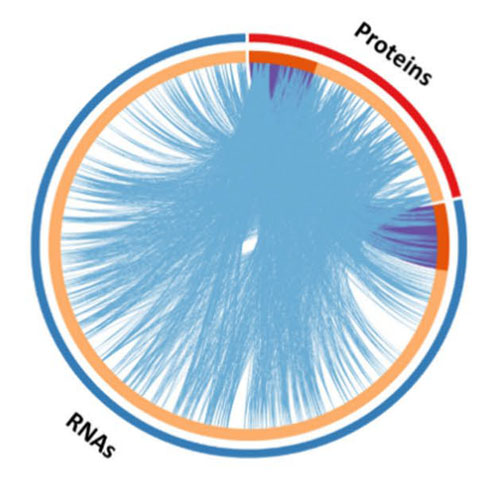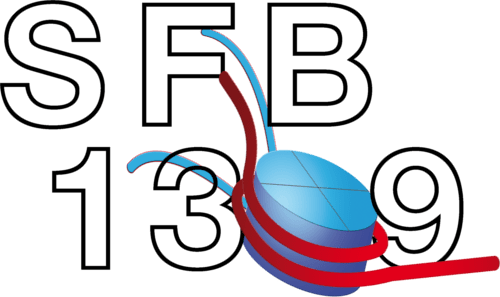3′‑tRF‑CysGCA overexpression in HEK‑293 cells alters the global expression profile and modulates cellular processes and pathways
2023-11-21
Paraskevi Karousi, Martina Samiotaki, Manousos Makridakis, Jerome Zoidakis, Diamantis C. Sideris, Andreas Scorilas, Thomas Carell, Christos K. Kontos
Integr Genomics, 23, 341, 2023
tRNA fragments (tRFs) are small non-coding RNAs generated through specific cleavage of tRNAs and involved in various biological processes. Among the different types of tRFs, the 3′-tRFs have attracted scientific interest due to their regulatory role in gene expression. In this study, we investigated the role of 3′-tRF-CysGCA, a tRF deriving from cleavage in the T-loop of tRNACysGCA, in the regulation of gene expression in HEK-293 cells. Previous studies have shown that 3′-tRF-CysGCA is incorporated into the RISC complex and interacts with Argonaute proteins, suggesting its involvement in the regulation of gene expression. However, the general role and effect of the deregulation of 3′-tRF-CysGCA levels in human cells have not been investigated so far. To fill this gap, we stably overexpressed 3′-tRF-CysGCA in HEK-293 cells and performed transcriptomic and proteomic analyses. Moreover, we validated the interaction of this tRF with putative targets, the levels of which were found to be affected by 3′-tRF-CysGCA overexpression. Lastly, we investigated the implication of 3′-tRF-CysGCA in various pathways using extensive bioinformatics analysis. Our results indicate that 3′-tRF-CysGCA overexpression led to changes in the global gene expression profile of HEK-293 cells and that multiple cellular pathways were affected by the deregulation of the levels of this tRF. Additionally, we demonstrated that 3′-tRF-CysGCA directly interacts with thymopoietin (TMPO) transcript variant 1 (also known as LAP2α), leading to modulation of its levels. In conclusion, our findings suggest that 3′-tRF-CysGCA plays a significant role in gene expression regulation and highlight the importance of this tRF in cellular processes.








